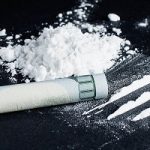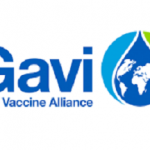About 3m Nigerians suffering varying forms of drug use disorders – UNODC
June 25, 2021
Over 14.3 million people in Nigeria used different kinds of drugs in the year 2020, the United Nations Office on Drugs and Crime (UNODC) said in its “World Drug Report 2021” published globally on Thursday.
The report stated that from UNODC’s Drug Use Survey in Nigeria, 14.3 million people used drugs, a figure that increased in 2020, along with the figure for Africa.
The UN body noted that the COVID-19 global pandemic also heightened the risk of drug use during the period under review and based on the current projections, Nigeria would have an estimated 20 million drug users to grapple with by 2030.
Global estimates puts about 5.5 per cent of the population aged between 15 and 64 years as having used drugs at least once in the past year, according to the report.
“Between 2010 and 2019, the number of people using drugs increased by 22 per cent, owing in part to global population growth.
“Based on demographic changes alone, current projections suggest an 11 per cent rise in the number of people who use drugs globally by 2030 — and a marked increase of 40 per cent in Africa, due to its rapidly growing and young population.
“In Nigeria, this would signify that the country will have to grapple with approximately 20 million drug users by 2030 further deepening the public health and public security challenge”, the report added.
UNODC also stated that there were over 257 million people worldwide who used drugs in the year under review, with an estimated 36 million people worldwide and about three million in Nigeria suffering varying forms of drug use disorders.
“Meanwhile, 36.3 million people, or 13 per cent of the total number of persons who use drugs, suffer from drug use disorders. In Nigeria, with 14.4%, the drug use prevalence is significantly higher than the global average,” it said.
The UN body pointed out that globally, over 11 million people were estimated to inject drugs, half of whom are living with Hepatitis C, while opioids continued to account for the largest burden of disease attributed to drug use.
A clear indicator of the frightful increase in drug use is the increase in daily doses of pharmaceutical opioids used to treat opioids disorder, which grew from 557 million daily doses to 3.31 billion daily doses in 2019.
It further pointed out that drug markets on the dark web, which only emerged a decade ago, now have some of its top companies grossing at least $315 million in annual sales.
“Rapid technological innovation, combined with the agility and adaptability of those using new platforms to sell drugs and other substances, is likely to usher in a globalized market where all drugs are more available and accessible everywhere” UNODC said.
On the milestones recorded amid COVID-19, the report said that the pandemic triggered innovation and adaptation in drug prevention and treatment services through more flexible models of service delivery.
It noted that many countries introduced or expanded telemedicine services due to the pandemic, with Nigeria training 130 health care professionals to respond to drug use issues. (NAN)








